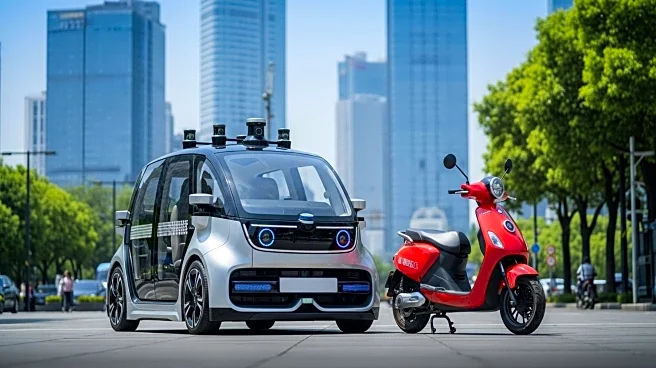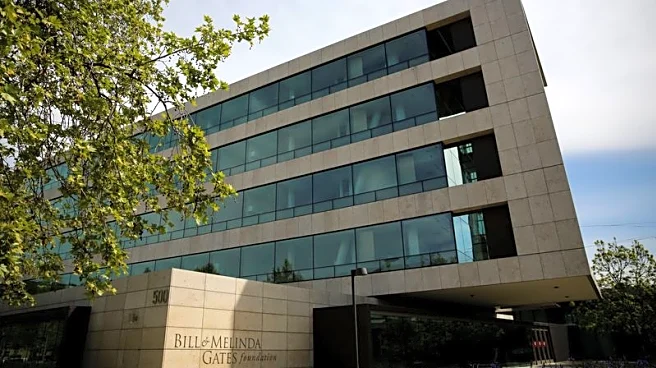What's Happening?
Waymo, the autonomous vehicle division of Alphabet, is set to expand its robotaxi service to Nashville through a partnership with Lyft. The company plans to begin autonomous operations in the city in the coming months, with public access expected next year. Riders will be able to hail self-driving vehicles using the Waymo app, and eventually through the Lyft app as well. Lyft will manage the robotaxi fleet, including vehicle maintenance and cleaning, while Waymo will handle the self-driving technology. This expansion follows Waymo's recent authorization to operate fully autonomously at San José Mineta International Airport and its pilot permit at San Francisco International Airport.
Why It's Important?
The expansion of Waymo's robotaxi service to Nashville marks a significant step in the broader adoption of autonomous vehicles in the U.S. This move could potentially reshape urban transportation, offering a new level of convenience and efficiency for commuters. The partnership with Lyft is particularly noteworthy as it combines Waymo's advanced self-driving technology with Lyft's established ride-hailing platform, potentially increasing consumer trust and adoption. The expansion could also stimulate local economic growth by creating new jobs related to fleet management and vehicle maintenance.
What's Next?
Waymo's entry into Nashville is part of a larger strategy to expand its autonomous services across the U.S. The company is also planning to launch services in cities like Denver, Seattle, and Dallas. As Waymo continues to grow, it may face regulatory challenges and public scrutiny, particularly concerning safety and the impact on traditional taxi services. The company will likely focus on building partnerships with local governments and businesses to facilitate smooth integration into new markets.
Beyond the Headlines
The expansion of autonomous vehicle services raises important ethical and legal questions, such as the impact on employment in traditional driving jobs and the need for updated traffic laws to accommodate self-driving cars. Additionally, the technology's ability to reduce traffic accidents and emissions could contribute to broader societal benefits, aligning with sustainability goals.









